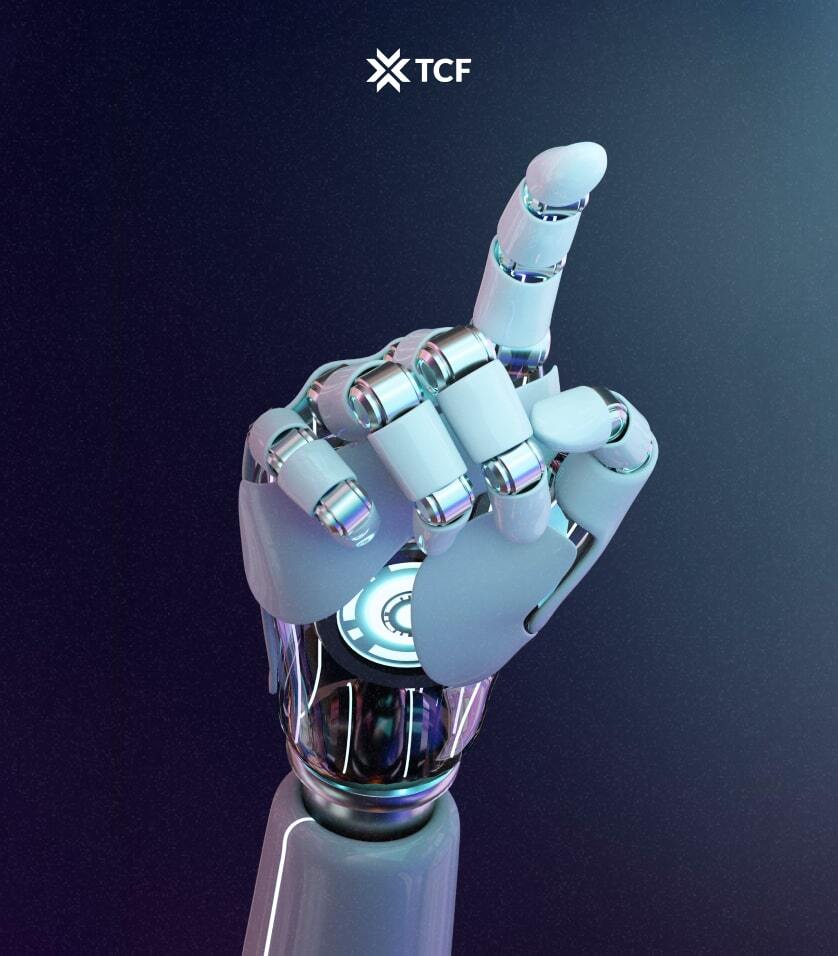AI has quietly become the backbone of ecommerce, powering everything from personalized recommendations to AI-generated product descriptions. It’s making online shopping faster, smarter, and—let’s be honest—way more addictive.
But with AI tools flooding the market, how do you separate the must-haves from the gimmicks? Some genuinely improve customer experience, streamline operations, and boost sales. Others are just flashy distractions.
This guide breaks it all down. We’re looking at the most impactful AI use cases in ecommerce, the tools actually worth your time, and what’s next for AI-driven shopping.
Whether you’re a brand owner, marketer, or just someone fascinated by the tech behind the scenes, you’ll walk away with a clear picture of how AI is transforming ecommerce—and how to use it to your advantage.
Let’s dive in.
Looking for E-Commerce Growth Solutions?
Let us optimize the process with expert strategies that lead to growth and higher sales.
The Coolest AI Use Cases in Ecommerce So Far
Artificial Intelligence (AI) is revolutionizing ecommerce with innovative applications that enhance customer experiences and streamline operations. Here are some of the most groundbreaking AI use cases in the industry:
1. Checkout-Free Shopping: Walk In, Grab, and Go
No lines, no scanning, no fumbling for your card—just walk in, take what you want, and leave. AI-powered checkout-free shopping is turning stores into frictionless experiences straight out of a sci-fi movie.
How It Works:
AI-driven computer vision, shelf sensors, and deep learning track what shoppers pick up and put back. The system automatically charges their account when they exit.
Who’s Doing It Best:
- Amazon Go: Pioneered the concept with AI-powered “Just Walk Out” technology. Cameras, shelf sensors, and deep learning track shoppers’ movements and purchases.
- Aldi Shop&Go: Uses AI-powered surveillance and object recognition to make checkout lines a thing of the past.
- Zippin & Standard AI: Retrofit existing stores with checkout-free capabilities, bringing the future of retail to smaller businesses.
Why It’s Cool:
- Cuts checkout time to zero.
- Eliminates shoplifting with AI-driven security.
- Increases impulse purchases since customers don’t hesitate at checkout.
This is the future of retail convenience—no carts, no waiting, just pure AI magic.
2. AI-Generated Shopping Guides: The New-Age Sales Assistant That Never Sleeps
Customers today don’t want to search for products—they want products to find them. AI-generated shopping guides are making that possible by acting as virtual personal shoppers, guiding consumers toward the right purchase without them even realizing it. For ecommerce businesses, this means fewer abandoned carts, higher conversion rates, and more engaged customers.
How It Works:
AI-powered shopping guides analyze customer behavior, preferences, and real-time trends to curate highly personalized product recommendations. They go beyond simple filters—responding to queries, comparing items, and dynamically adapting based on user interactions.
Who’s Using It Best:
- Amazon Rufus: Amazon’s AI shopping assistant answers product-related questions, compares items, and refines recommendations, making discovery seamless.
- Google AI Shopping Graph: Pulls data from billions of products, factoring in reviews, stock levels, and pricing trends to suggest the best options.
- Pinterest AI Trends: Uses image recognition to match customers with products based on their visual preferences, ideal for fashion and home decor brands.
Why Ecommerce Brands Should Care:
- Boosts conversions: The right recommendation at the right time turns browsers into buyers.
- Reduces decision fatigue: Customers who don’t have to dig through thousands of options are more likely to complete their purchase.
- Increases order value: Smart AI upselling and cross-selling make add-ons feel like natural choices rather than pushy suggestions.
Instead of letting customers get lost in the noise, AI-driven shopping guides streamline their journey—leading them straight to checkout.
3. AI in Resale Platforms: Scaling Secondhand Ecommerce with Precision
The resale market is booming, but unlike traditional ecommerce, secondhand platforms face unique challenges—pricing inconsistencies, authenticity concerns, and a time-consuming listing process. AI is stepping in to solve these issues, making resale platforms more efficient, scalable, and trustworthy.
How It Works:
AI-powered tools streamline everything from product authentication to dynamic pricing, automating what was once a manual, time-consuming process. By analyzing market trends, AI can set optimal price points, detect counterfeit items, and even generate detailed product descriptions.
Who’s Doing It Best:
- The RealReal’s AI Authentication: Uses AI and machine learning to detect counterfeit luxury goods by analyzing images and historical fraud patterns.
- eBay’s AI-Powered Listings: Automates the process of writing product descriptions and categorizing items, making it easier for sellers to list products quickly.
- Vestiaire Collective’s Smart Pricing Algorithm: Dynamically adjusts resale prices based on demand, ensuring sellers get the best price while keeping products competitive.
Why Ecommerce Businesses Should Pay Attention:
- Automates tedious processes: AI-generated descriptions and category tagging speed up listings.
- Reduces fraud risks: Advanced AI-driven authentication protects platforms from counterfeit items and shady sellers.
- Optimizes pricing: AI tracks demand fluctuations and competitor listings to keep prices attractive to both buyers and sellers.
For ecommerce brands expanding into resale, AI eliminates friction, making secondhand shopping as seamless as new product purchases—while keeping margins high and trust intact.
4. AI-Driven Customer Service Chatbots: Your 24/7 Virtual Sales & Support Team
Customer service in ecommerce is a make-or-break factor—slow responses lead to lost sales, and poor support ruins brand trust. AI-driven chatbots are changing the game, providing instant, intelligent, and scalable customer support without requiring a massive team.
How It Works:
These chatbots use natural language processing (NLP) and machine learning to understand customer questions, provide relevant answers, and even handle complex support tasks like processing refunds or tracking orders. Advanced bots can even predict customer concerns based on browsing behavior and proactively offer solutions.
Who’s Using It Best:
- Sephora’s Virtual Assistant: Helps customers find the right beauty products, offers personalized recommendations, and even provides virtual try-ons.
- H&M’s AI Chatbot: Acts as a personal stylist, suggesting outfits based on user preferences and past purchases.
- Alibaba’s AliMe: Handles customer queries, assists with orders, and can even negotiate discounts in real-time for B2B transactions.
Why Ecommerce Brands Should Care:
- Reduces response time to seconds, keeping customers engaged and increasing conversions.
- Cuts customer service costs by handling repetitive inquiries without human intervention.
- Improves customer experience by offering personalized recommendations and proactive support.
With AI chatbots, ecommerce businesses can scale their customer service effortlessly, ensuring shoppers get the answers they need—instantly and efficiently.
5. AI-Powered Fraud Detection Systems: Stopping Fraud Before It Happens
Ecommerce fraud is getting smarter, but so is AI. Traditional fraud detection methods rely on rigid rule-based systems that often flag legitimate transactions or, worse, miss actual fraud. AI-powered fraud detection, on the other hand, adapts in real time—identifying suspicious patterns, blocking fraudulent transactions, and keeping businesses (and customers) safe.
How It Works:
AI fraud detection systems analyze thousands of data points per transaction—device fingerprints, geolocation, transaction velocity, behavioral analytics, and even typing speed—to detect anomalies. Unlike static fraud filters, AI continuously learns from new threats and refines its fraud-detection accuracy.
Who’s Using It Best:
- PayPal’s AI Security System: Uses deep learning to detect fraud patterns across millions of transactions daily.
- Shopify’s Fraud Protect: Analyzes order risk levels and automatically flags potential fraud cases for store owners.
- Stripe Radar: Uses machine learning to block fraudulent payments in real time without disrupting legitimate transactions.
Why Ecommerce Businesses Should Care:
- Prevents chargebacks: AI can detect fraud before the purchase is finalized, saving businesses from refund disputes.
- Reduces false declines: Traditional fraud filters reject valid transactions, costing businesses millions in lost sales—AI minimizes these errors.
- Adapts to evolving threats: AI fraud detection continuously updates itself, keeping businesses protected against new attack strategies.
With AI, ecommerce businesses can detect and stop fraud before it costs them money—without blocking legitimate customers in the process.
6. AI-Driven Content Creation for Marketing: Scalable, Smart, and Surprisingly Human-Like
Content marketing is a powerhouse for ecommerce growth, but keeping up with high-quality content demands is a challenge. AI is stepping in as a game-changer—writing compelling product descriptions, generating social media posts, optimizing ad copy, and even creating video scripts at scale. And the best part? It’s doing it in seconds.
How It Works:
AI-powered content creation tools use natural language processing (NLP) and machine learning to generate human-like text, design visuals, and even create short-form videos. These tools analyze brand tone, audience preferences, and trending topics to craft content that resonates with shoppers.
Who’s Using It Best:
- Jasper AI & Copy.ai: Generate SEO-friendly product descriptions, email campaigns, and social media captions instantly.
- ChatGPT & Gemini: Provide in-depth, conversational blog posts and marketing copy tailored to brand needs.
- Synthesia & Runway: AI-powered video generators that create marketing videos without expensive production teams.
Why Ecommerce Businesses Should Care:
- Saves time and resources: AI generates polished content in minutes, reducing workload for marketing teams.
- Boosts engagement: AI tools analyze trending keywords and audience behavior to craft content that converts.
- Enables personalization at scale: Dynamic AI-generated emails and ad copy adapt to each customer’s preferences, increasing ROI.
For ecommerce brands looking to scale content marketing without stretching resources, AI is making high-quality, targeted content creation faster, easier, and more effective than ever.
The Only AI Tools You Should Actually Try (Forget About the Other 1 Million)
AI is flooding the ecommerce space, promising automation, smarter decisions, and higher sales. But let’s be honest—not all AI tools are created equal. Some actually move the needle, while others just sound impressive. Instead of getting lost in the hype, here’s a curated list of AI-powered tools that truly impact ecommerce businesses, broken down into specialized categories so you can find exactly what fits your needs.
1. AI Tools for Ecommerce Data & Analytics
💡 Track sales, forecast demand, and optimize your ecommerce strategy using AI-driven insights.
- Hypersonix – AI-powered ecommerce analytics that predicts trends, optimizes pricing, and boosts profitability.
- Peel Insights – Automates ecommerce reporting and provides AI-driven customer segmentation for better targeting.
- Algopix – Market intelligence tool that uses AI to analyze competitor pricing, demand, and profit margins.
- Black Crow AI – AI-driven customer prediction tool that helps you retarget potential buyers before they leave.
- Looker (Google Cloud AI Analytics) – Advanced AI-powered business intelligence (BI) tool for ecommerce.
AI analytics tools turn raw data into revenue-boosting decisions, from pricing adjustments to customer retargeting.
2. AI Tools for Ecommerce Automation
⚡ Automate tedious backend processes like inventory tracking, email flows, and fulfillment.
- Zapier AI Actions – Automates workflows across ecommerce tools (Shopify, Klaviyo, Google Sheets, etc.).
- Loop Returns AI – An AI-powered returns management system that reduces refunds and converts them into exchanges.
- Dynamic Yield – AI-driven personalization engine that adapts site content, recommendations, and promotions based on user behavior.
- Segment (by Twilio) – AI-powered customer data platform (CDP) that creates hyper-personalized shopping experiences.
AI-powered automation saves time, cuts costs, and improves efficiency, letting you focus on strategy instead of repetitive tasks.
3. AI Tools for Ecommerce Product Content Creation
🖊 Write, optimize, and automate product descriptions, SEO, and marketing copy.
- ChatGPT (OpenAI) – The best AI assistant for writing product descriptions, ad copy, and customer emails.
- Gemini (Google AI) – Google’s AI for generating SEO-friendly product content and keyword-rich copy.
- Jasper AI – A marketing-focused AI tool that creates product listings, blog posts, and ad creatives.
- Tiipe – AI-powered bulk product description generator for ecommerce stores.
- Surfer AI – SEO-driven content creation tool for ecommerce blogs, product pages, and metadata.
AI content tools eliminate writer’s block and ensure every product page is SEO-optimized for conversions.
4. AI Tools for Ecommerce Pricing & Demand Forecasting
📊 AI-powered pricing & inventory tools that keep your business competitive.
- Prisync – AI-driven dynamic pricing that automatically adjusts prices based on competitor movements.
- Feedvisor – AI-powered Amazon repricing tool that maximizes profitability without undercutting yourself.
- Inventoro AI – AI-powered demand forecasting, helping businesses prevent stockouts and overstocking.
- Blue Yonder AI – Uses machine learning to optimize ecommerce supply chains.
AI helps businesses price competitively, predict demand, and avoid revenue loss from stock mismanagement.
5. AI Chatbots for Ecommerce (Customer Support & Sales)
AI chatbots are more than just automated support agents—they handle sales, reduce cart abandonment, and even act as personal shopping assistants.
- ChatGPT API (OpenAI) – Can be trained on store data for real-time customer interaction.
- Gemini for Business (Google AI) – Advanced AI search-driven chatbot for complex queries.
- Gorgias – AI-powered customer support chatbot that automates responses and integrates with Shopify.
- ManyChat – Social commerce chatbot for Instagram, WhatsApp, Messenger, and SMS.
- Rep AI – AI-powered virtual sales concierge that helps shoppers make decisions in real time.
- Chatbase – AI chatbot that learns from your website, FAQs, and product pages.
AI chatbots cut customer service costs, boost engagement, and drive sales 24/7.
6. AI Ecommerce Assistants (Personalization, Upselling & Retention)
AI assistants enhance the shopping experience by delivering hyper-personalized recommendations, upselling, and improving customer retention.
- ViSenze – Visual AI search, allowing customers to find products using images instead of text.
- Nosto – AI-driven personalization tool that creates targeted offers and recommendations.
- Dynamic Yield – AI-powered upselling tool that adjusts product recommendations in real-time.
- RetentionX – AI-powered customer retention software that predicts churn and suggests personalized retention offers.
AI-driven assistants increase conversions and customer lifetime value (CLV).
7. AI Ecommerce Website Builders (Building & Optimizing Online Stores)
Forget generic templates—these AI-powered store builders optimize UX, design, and conversion rates automatically.
- Shopify Magic – AI-powered Shopify tool for writing product descriptions, email copy, and store headlines.
- 10Web AI Builder – AI-powered WordPress and WooCommerce builder that automates store design.
- Wix ADI – AI-driven store builder that generates SEO-optimized ecommerce pages.
- Framer AI – AI website builder that creates store pages based on a simple text prompt.
AI-powered website builders reduce development time and optimize for sales automatically.
8. AI Tools for Ecommerce Visual & Video Content
AI isn’t just writing—it’s creating product images, videos, and dynamic visuals at scale.
- Murf AI – AI-powered voiceovers for product videos and ads.
- Synthesia – AI-generated video ads, product demos, and explainers.
- Runway – AI-driven video editing and content generation.
- Wisecut – Automatically edits ecommerce videos for social media.
- Claid.ai – AI-enhanced product photo editing for better-looking store visuals.
AI visual tools eliminate the need for expensive photographers and editors.
AI in ecommerce isn’t about using every tool out there—it’s about picking the right ones that actually deliver results. Start with a few from each category and watch your business scale smarter, not harder.
Take Your Online Store to New Levels
Team up with our dedicated team of experts to:
- Expand your reach
- Increase your brand visibility
- Drive more conversions
- Boost revenue and more
The Future of AI in Ecommerce… As If We Know It
AI is evolving from an assistant to an independent decision-maker, transforming ecommerce into a world of self-learning systems, advanced ecommerce personalization, and fully automated operations.
Here’s what we think is coming next:
1. AI Shopping Assistants That Think for Themselves
AI will no longer wait for customer input—it will predict what shoppers need before they even search. Based on browsing habits, purchase history, and external trends, AI will suggest, compare, and even pre-select products tailored to individual preferences.
It won’t just answer questions; it will proactively guide the entire shopping experience, negotiating discounts, offering bundle deals, and personalizing recommendations in real time.
2. Personalized Shopping That’s Practically Psychic
Forget basic product recommendations—future AI will analyze mood, lifestyle changes, and upcoming needs to tailor shopping experiences. AI won’t just know what a customer wants—it will predict when they’ll want it.
A customer searching for baby clothes today? AI will start suggesting toddler essentials months before they even think about it.
3. AI-Generated Content That Adapts Instantly
Static product descriptions and generic ad copy will be replaced by AI-driven content that updates in real time. AI will write, test, and optimize product pages, emails, and ads based on customer behavior and shopping patterns.
A major shift will be the role of generative AI in ecommerce, creating dynamic product descriptions, personalized marketing copy, and entire ad campaigns with minimal human input. The same product might have different descriptions for different shoppers, increasing relevance and conversions.
4. AI-Powered Stores That Run Themselves
The ecommerce store of the future will be a fully autonomous system, adjusting pricing, inventory, and marketing dynamically. AI will track competitor prices, supply chain issues, and sales trends to optimize operations with minimal human intervention.
Storefronts will become self-improving ecosystems, where AI continuously refines the customer journey, from first visit to checkout.
Conclusion
AI is no longer just an add-on in ecommerce—it’s becoming the backbone of how businesses operate, from personalized shopping experiences to fully automated store management. Brands that embrace AI now will streamline operations, increase efficiency, and deliver smarter, more engaging customer experiences.
With so many AI tools available, the real challenge is knowing which ones actually drive results. The right tools will improve decision-making, automate repetitive tasks, and create a seamless shopping journey, while the wrong ones will waste time and resources.
Ecommerce is moving toward self-optimizing systems that predict customer needs, generate real-time content, and manage operations with minimal human input. Businesses that adapt to this shift will stay ahead, scale faster, and create more meaningful connections with their customers.
The future belongs to those who use AI where it truly matters—and that future is already here.
Don’t forget to be nice to AI.. just in case!





Comments